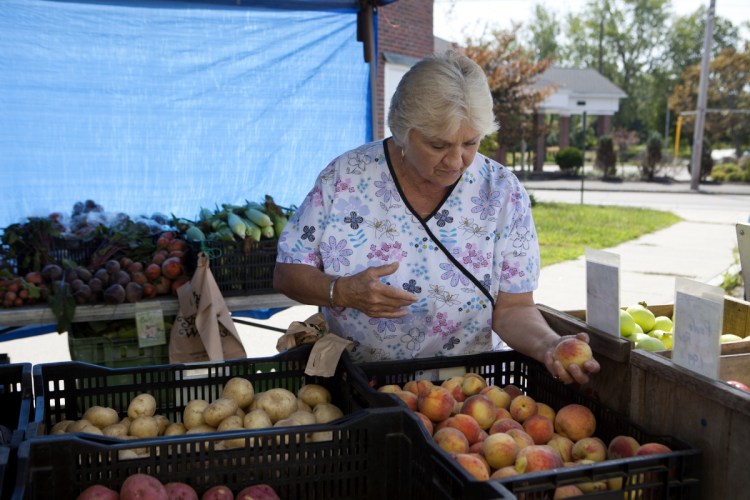Participants in the Maine Senior FarmShare Program each receive $50 worth of fresh fruit and vegetables from a local farm – and that’s not even the healthiest part of it.
More than a few pounds of blueberries and a few ears of corn, the program provides a sense of community that can be lacking for Maine seniors. That’s a powerful balm against isolation and loneliness, two under-the-radar bringers of misery and illness that should get more attention.
In the farmshare program, each senior’s $50 goes not to the participants themselves but as a credit to the farm that signs them up. The senior can then stop by the farm to redeem those credits as they wish throughout the growing season, picking up early-season berries one visit then waiting for squash later on.
The program is a win-win for seniors, who get a variety of fresh produce when their budget may cover only canned, and farmers, who get an influx of cash early in the season, and the opportunity to reach new customers.
If that was all the program did – provide healthy local food to low-income seniors, and customers to family farms – it would more than justify its federal funding.
But participating farms and seniors notice something else about the program – by drawing seniors into a farm’s orbit for the growing season, it is forging a relationship that goes past buyers and sellers. Farms who sell direct to consumers like to get to know their customers, and that gives seniors another place to go where they are known and welcome. It’s another person to say hi to, another chance at a conversation and another set of eyes checking in on how they are doing.
That’s no small thing. Growing old, unfortunately, can be very destabilizing. Seniors lose spouses, friends and family to death and distance. Their budget becomes tight. It gets harder to move around.
Having that community slowly dissolve around them can lead to social isolation and loneliness, then to physical and mental decline – you know, if you don’t use, you lose it. And it can be particularly stark in more poor and rural areas, like much of Maine.
Something like the farmshare program allows seniors to stay connected. It gives them a place to visit where the workers know who they are. It allows them to try new foods, and learn new ways to prepare and preserve them. It pricks their minds in a variety of ways vital to staying healthy and engaged.
The farmshare program reaches just a small portion of Maine seniors; about 17,000 have signed up this year.
But its lessons can be applied to other areas as well, including housing, transportation and health care. As one of the oldest and most rural states, Maine must always be thinking about the day-to-day lives of seniors.
Send questions/comments to the editors.


